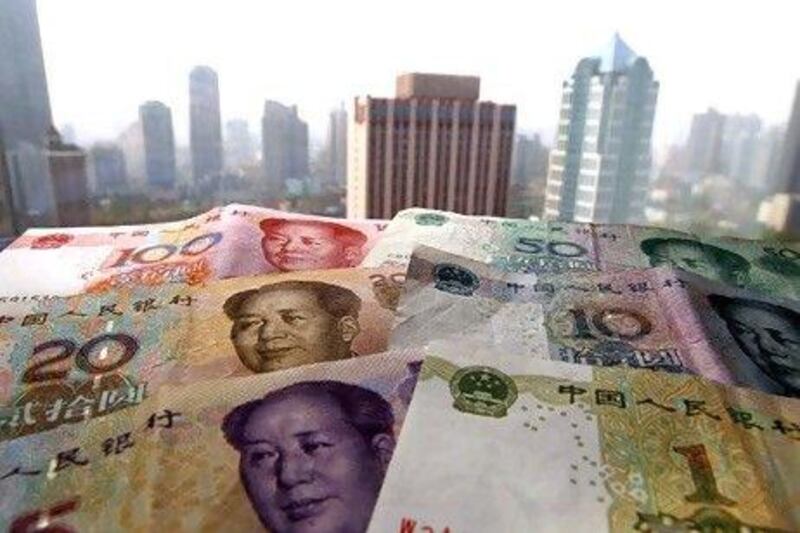Dubai should seek to become an offshore trade centre for the Chinese currency as Beijing slowly loosens its grip on the yuan, says HSBC.
As an international financial centre, the emirate needs to follow Hong Kong in becoming an overseas yuan trading hub, said Bruce Alter, the head of trade at HSBC in China.
"London is going to be next and my view is that Dubai should be not that far behind," he said at a conference in Dubai yesterday.
"London is the bridge between Europe and China, and Dubai could be the bridge between [yuan] cross-border trade itself."
International cities including London and Singapore are vying for a slice of the fast-growing offshore yuan business as Beijing has become keen to give its currency greater muscle around the world. Two years ago, Hong Kong became the first testing ground outside mainland China for a freer yuan, and sales of yuan bonds in the city have since risen.
The Dubai International Financial Centre (DIFC) was discussing plans to permit transactions in yuan, DIFC officials were quoted by Reuters as saying in February.
Dubai and the UAE as a whole are already forging closer ties with China. The Dubai bank Emirates NBD last month completed its first bond sale denominated in the Chinese currency, while the Central Bank in January announced a currency swap deal.
Unlike other offshore trading centres, the UAE has oil, a commodity which was among the top three products China imported from sources worldwide last year. In the latest sign of liberalisation of China's currency, the yuan will from today be tradable across a wider band against the US dollar.
The currency is being allowed to rise or fall on a daily basis by as much as 1 per cent from the official rate against the greenback, twice the previous trading limit, China's central bank said on Saturday. This is likely to mean the currency will appreciate by between 2 and 3 per cent, said Mr Alter.
Observers say the move fits into China's intention to rebalance its economy towards more domestic consumption.
The United States has accused China of keeping its currency artificially low to boost exports.
"This underlines China's commitment to rebalance its economy toward domestic consumption and allow forces to play a greater role in determining the level of the exchange rate," said the IMF chief Christine Lagarde, responding to the change in the currency regime.
UAE firms operating in China also welcomed the move. "This is an opportunity for us. We do our business in dollars but we are talking to our customers about the option of providing finance in [yuan]," said Harjeev Kandar, an executive director at Al Dobowi Group,a Dubai firm that produces tyres and other vehicle products.
Rami Ghandour, the executive director of Metito Utilities, a water treatment company with operations in China, said the move would help with the exchange of non-yuan denominated cash.
"Our business in China is in [yuan]," he said.
"We do have certain pockets of cash trapped outside, so it will enable us to be more efficient."
twitter: Follow and share our breaking business news. Follow us





